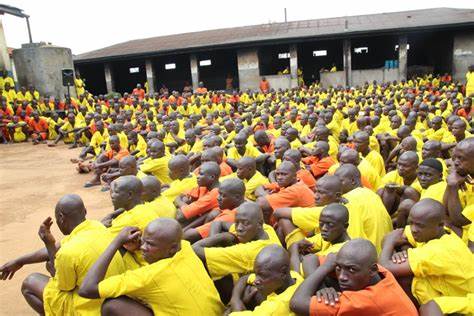By CHANGE OF GUARDS
The Uganda Prisons Service was one of the few government institutions that took longer for Museveni to take full control of. Like many other institutions, it had been dominated by personnel from the greater northern region. It also took time for citizens from other regions, especially Museveni’s home area, to be attracted to the service. Additionally, the regime was slow to recognize the crucial role that the prison service could play in its autocratic system. Its focus was primarily on filling top command positions with individuals from Museveni’s home region.
The regime’s need for control over the Uganda Prisons Service became more apparent in the early 2000s, particularly during efforts to suppress the Dr. Besigye-led opposition. For politically motivated operations like Operation Wembley and the Anti-Terrorism operations, the regime adopted the practice of detention without trial. It required the cooperation of Prisons personnel to torture and remand prisoners, detain individuals without trial, bypass court procedures in illegally remanding detainees, and carry out forced disappearances. While some Prisons officers were recruited to serve the regime’s interests, others were viewed as hostile.
In 2005, the High Court granted bail to the shadowy PRA suspects, but before they could regain their freedom, hooded commandos swooped in to kidnap them. The Prison personnel manning the holding cells successfully resisted the attempt. However, ten years later, in November 2015, the same commandos raided the High Court again, kidnapping 14 PRA suspects—this time with no resistance from the Prisons personnel present.
Over the last twenty years, the regime has systematically eliminated the dominance of northerners in the Uganda Prisons Service. It has succeeded in attracting its ‘own people’ to join the service. The entire institution has been transformed into a vital component of the state’s coercive machinery. The newly established Safety and Security Unit, which is part of the Army’s Special Forces Command (SFC), is now responsible for carrying out various forms of abuse against detainees, including forced disappearances, poisoning, induced fire outbreaks, stage-managed escapes, and jailbreaks—all designed to eliminate specific prisoners.
This explains how Minister Barlam has been able to conduct private visits to NUP detainees, using blackmail in exchange for their freedom. In reality, no security lapse within the prison service warranted its militarization.
INFORMATION IS POWER AND THE PROBLEM OF UGANDA IS MUSEVENISM







Discussion about this post